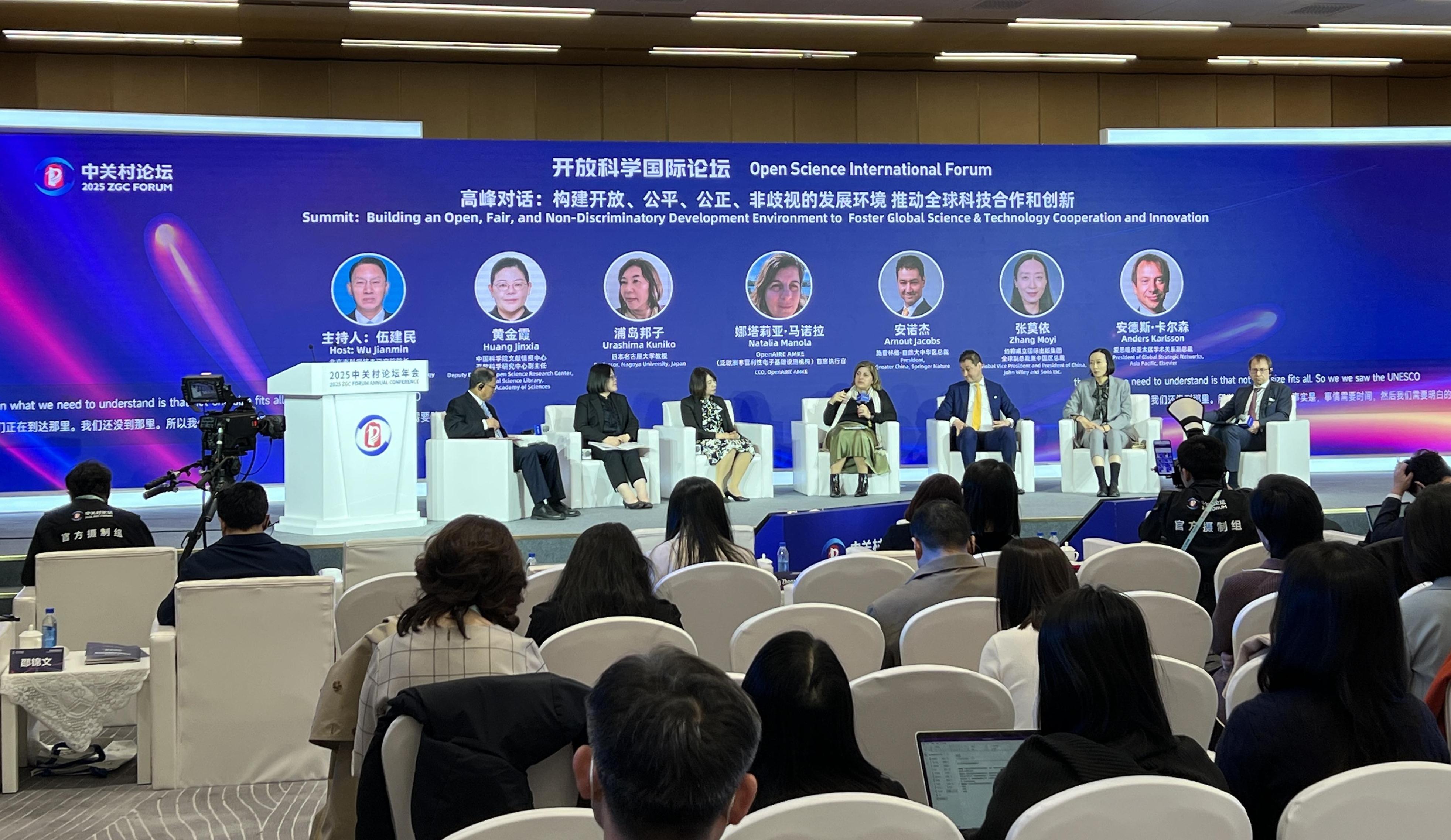China Unveils Landmark AI-assisted Academic Monograph at London Book Fair

China's first AI-assisted academic monograph, AI for Rock Dynamics, was officially released at the London Book Fair on Mar 12, 2025. This groundbreaking work, led by Academician He Manchao, President of the Chinese Society for Rock Mechanics and Engineering (CSRME), and featuring contributions from 25 young scholars, demonstrates the growing integration of AI into academic research and publishing.
Jointly initiated in June 2024 by the prestigious international publisher Springer Nature, the Chinese Society for Rock Mechanics and Engineering, and CNPIEC Kexin Technology Co., Ltd., the "Smart Pen Initiative" aimed to explore revolutionary AI-powered methods for academic publishing. AI for Rock Dynamics is the first work generated under this initiative using Luffa AI, a Chinese-developed large language model.
Authors of the monograph include Academician He, Prof Wang Lige, Prof Yao Wei, Associate Prof Dang Wengang and Associate Researcher Wang Zhuo. The collaborative effort saw He and his team creating a comprehensive research outline and ensuring the manuscript's scholarly depth, while CNPIEC Kexin Technology provided technological support through its Luffa AI system. Springer Nature oversaw the open-access publishing process, bringing the work to the global stage. This marked the first complete process—from content production to worldwide distribution—using a domestic AI model.
Traditionally, academic monographs can take years or even over a decade to evolve from raw data to completed drafts. In stark contrast, AI for Rock Dynamics utilized advanced language models to generate and refine content in just under four months.
Throughout the process, compilers heavily revised the AI-generated texts, continuously optimizing chapters to ensure academic rigor. The completed work features contributions based on over 900 cited Chinese and English references and incorporates insights from approximately 13,000 images.
The editorial process behind AI for Rock Dynamics balanced speed with precision by integrating AI assistance with rigorous human oversight. A team of 25 young scholars played a key role, in addressing challenges such as AI-generated "hallucination" and the complexities of long-form content.
At the launch event, Wang Lige, a professor at Shandong University and an author representative, emphasized that AI alleviates researchers from tedious data compilation, enabling them to concentrate on innovative studies. Xu Ruohua, CEO of CNPIEC Kexin Technology, underlined the importance of human-machine collaboration, stating, "The mission of AI is not to replace human intelligence but to serve as an indispensable partner through seamless interaction." James Finlay from Springer Nature highlighted the transformative potential of AI in the publishing process, stating that advancing content generation efficiency and knowledge dissemination is only the beginning of AI's capability in academic publishing.
The event also featured a signing ceremony chaired by Wang Zhuo, Secretary General of CSRME's International Affairs Secretariat, during which copies of the monograph were jointly signed by CNPIEC's CEO Lin Liying, Professor Wang Lige, and Niels Thomas, managing director for books at Springer Nature, marking the significance of this pivotal moment.
The release of AI for Rock Dynamics represents more than just a milestone for China's integration of AI into academic publishing. It serves as a proof of concept for the transformative role of AI and human-machine collaboration in enhancing research efficiency and advancing knowledge sharing. The work offers a replicable "China solution" for improving scientific practices worldwide and fostering the principles of open science.
Source: Chinese Society for Rock Mechanics and Engineering / Voice of Cast (VOC)
Please visit the official website of Voice of CAST to find more: https://voc-gj.cast.org.cn/







